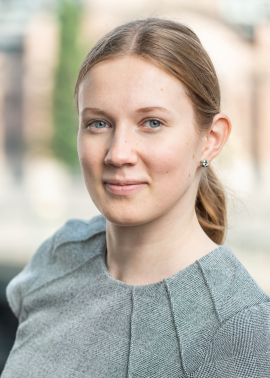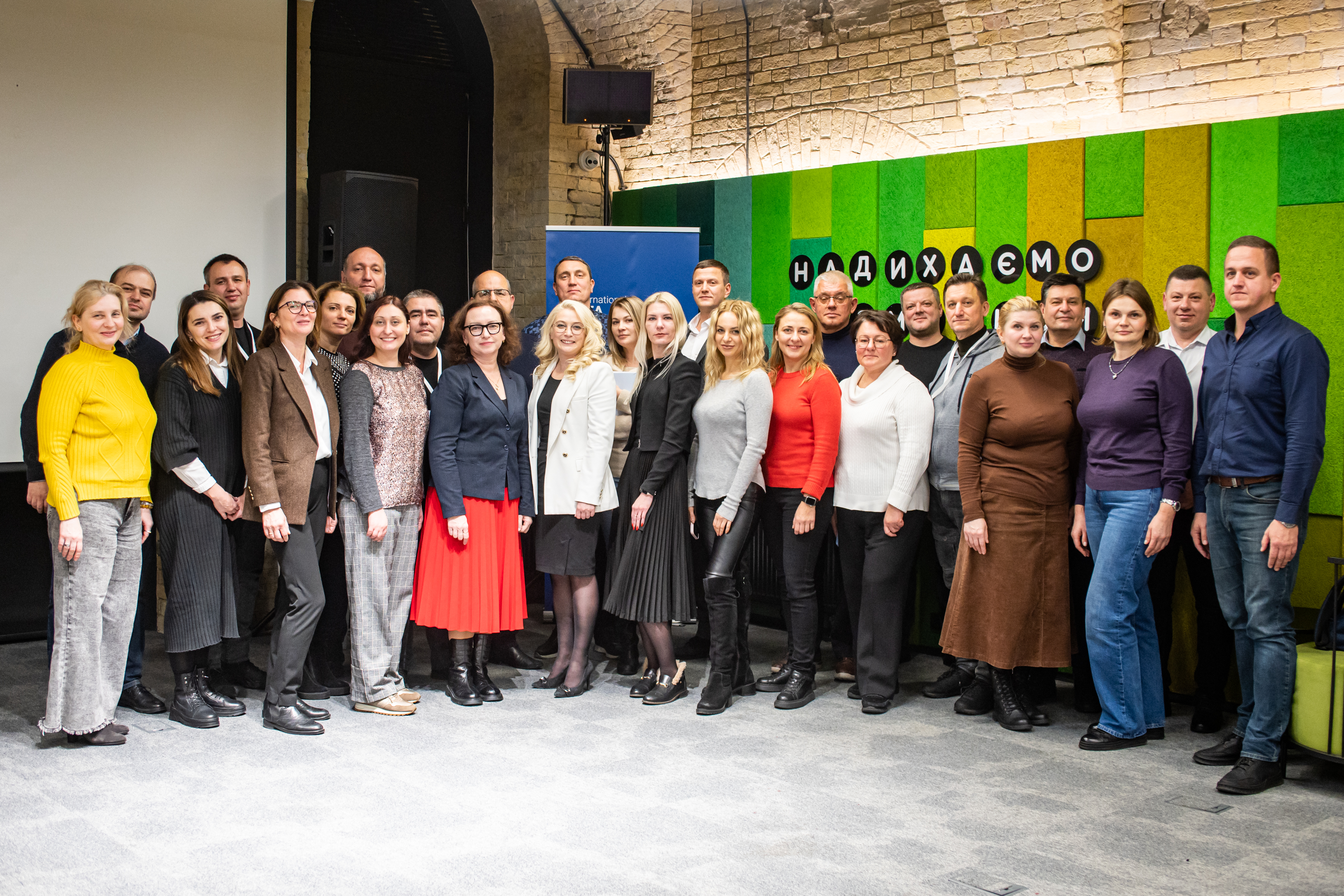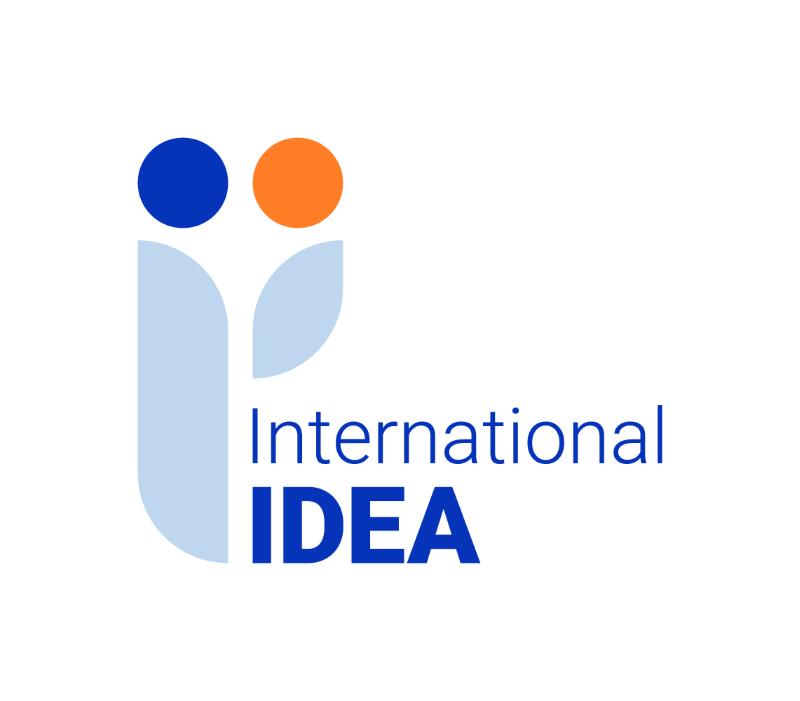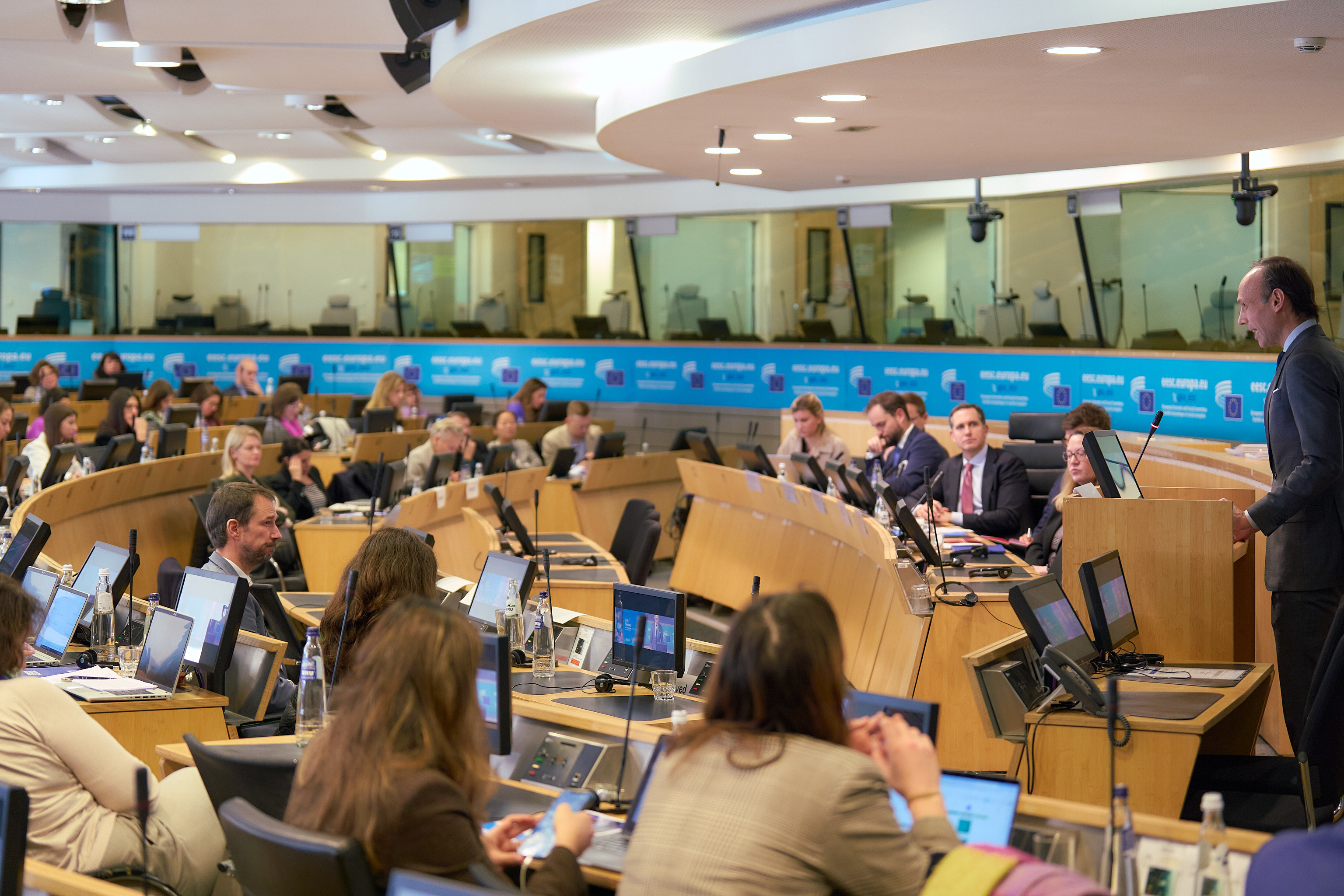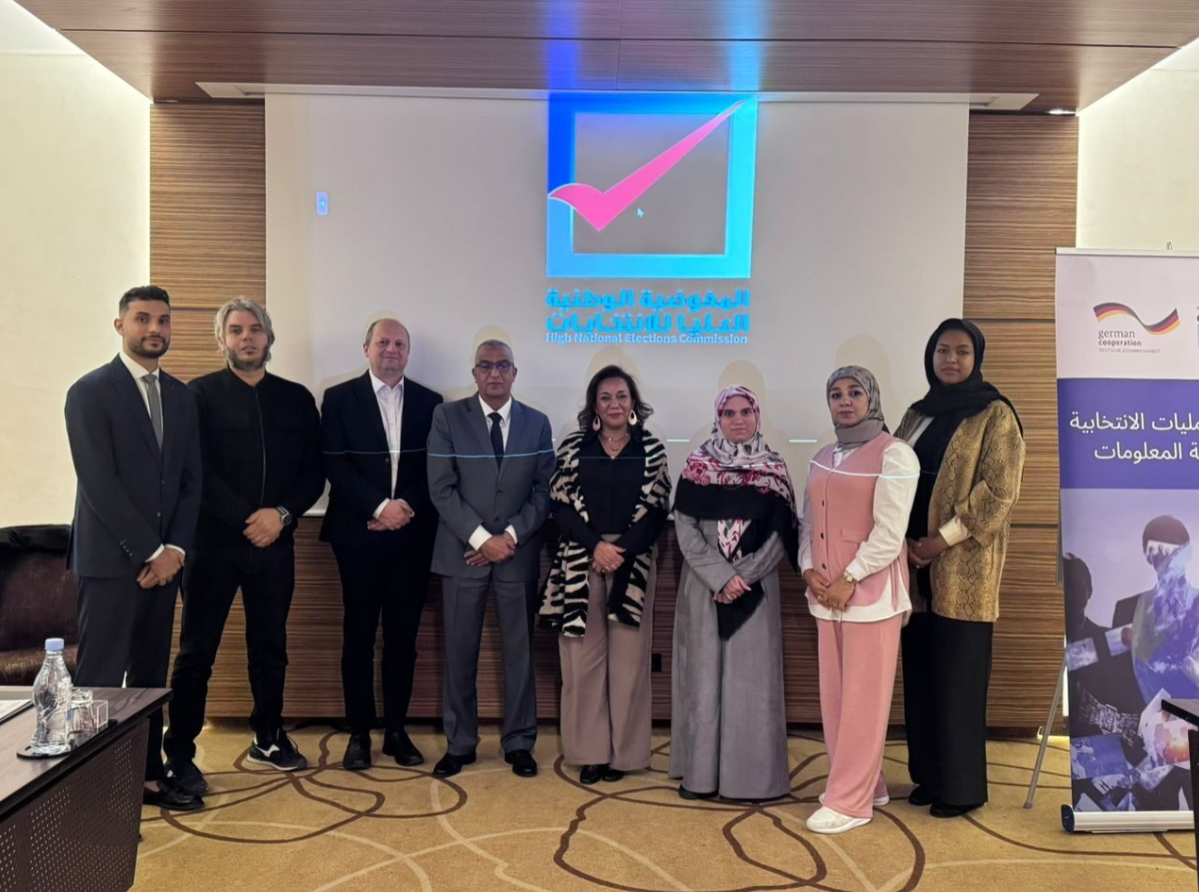Almedalen Democracy Summit 2021 - Bridging the Divide
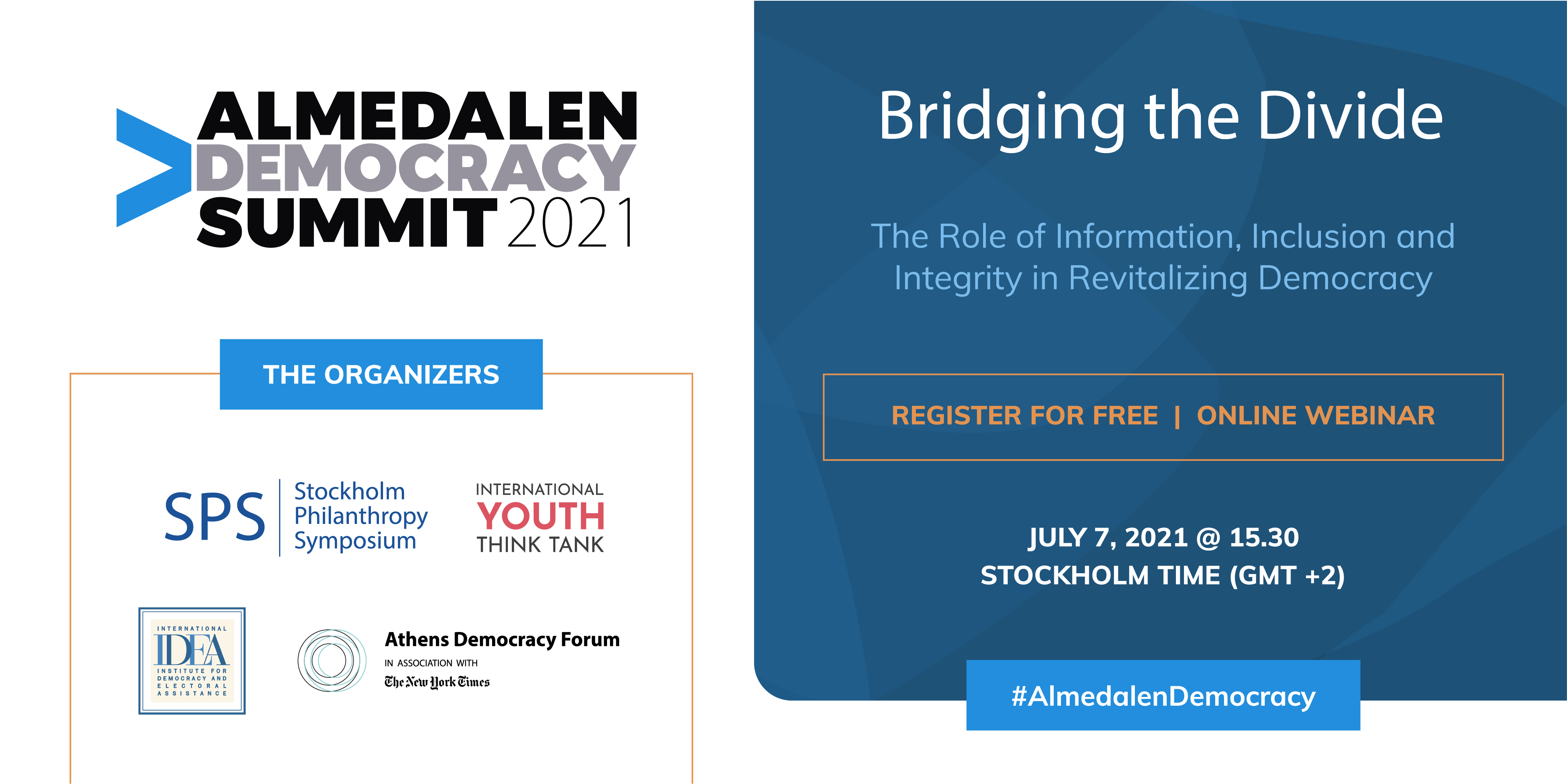
International IDEA, in collaboration with Athens Democracy Forum, International Youth Think Tank and Stockholm Philanthropy Symposium, hosted the Almedalen Democracy Summit on 7 July 2021. The inaugural Summit was arranged as part of Sweden’s Almedalen week, a democratic tradition going back to 1968, gathering policymakers, civil society, academia, media and the private sector.
The Almedalen Democracy Summit, centred around democracy’s challenges and opportunities, sought to exchange ideas on renewing and revitalising democracy for future generations. The event was moderated by Dr Kevin Casas-Zamora, International IDEA’s Secretary-General. He highlighted the symbolic value that Almedalen holds for democracy in Sweden and noted that the event is a prime example of the kind of open dialogue that democracy requires.

In her introductory remarks, Sweden’s Minister for Foreign Affairs Ann Linde stressed that democracy cannot be taken for granted and mentioned Sweden’s Drive for Democracy and Democracy Talks as examples of Swedish initiatives to strengthen and nurture democracy. Minister Linde also emphasized the central role that gender equality, as well as access to information, have for a functioning democracy.
The keynote address was given by the Honourable Madeleine Albright, who served as the 64th Secretary of State of the United States. Madam Albright noted that there is reason for optimism despite the shrinking space for freedom and attacks on the rule of law, describing herself as an “optimist who worries a lot.” Inspired by the youth and women she has encountered over the years, Madam Albright emphasized that while democracy might be fragile, it is also resilient. In her remarks, Madam Albright also highlighted the role of cooperation, the importance of taking an inclusive approach with youth at its core and the need to push back against authoritarian forces.
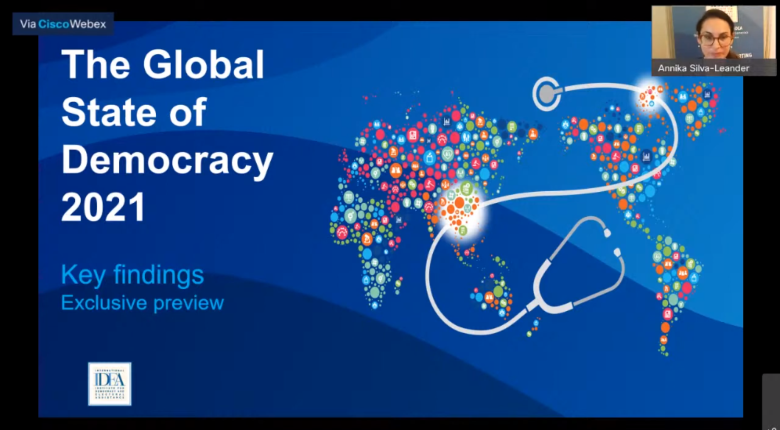
the key challenges and opportunities from the forthcoming Global State of Democracy
2021 Report.
Dr Annika Silva-Leander, Senior Programme Manager at International IDEA, presented some of the key highlights of the Institute’s upcoming Global State of Democracy (GSoD) 2021 Report. She started off with the observation that while the world is becoming less democratic, it is also becoming more authoritarian. 70% of the population live in backsliding democracies or non-democratic regimes and even old democracies are challenged by the rising authoritarianism and its new forms.
Nevertheless, the forthcoming GSoD report also finds opportunities amidst the challenges accelerated by Covid-19. Dr Silva-Leander pointed out the high levels of social mobilization taking place despite the pandemic and the myriad of innovations designed to ensure that people can continue to exercise their democratic rights. In addition, she noted the increasing evidence suggesting that democracies outplay authoritarian regimes when it comes to sustainable development and handling crises. In the final part of the presentation, Dr Silva-Leander shared some of the main conclusions of the report and presented a 3-point agenda for democratic recovery.

The event also featured Youth Fellows from the Gothenburg based International Youth Think Tank (IYTT). Julia Strandquist and Daniel H. Urquijo presented two of IYTT’s policy briefs, which focus on community assemblies and journalistic immunity. They argued that deliberative community assemblies can function as a complement to representative democracy and called for the implementation of journalistic immunity in order to protect the increasingly threatened journalistic integrity.
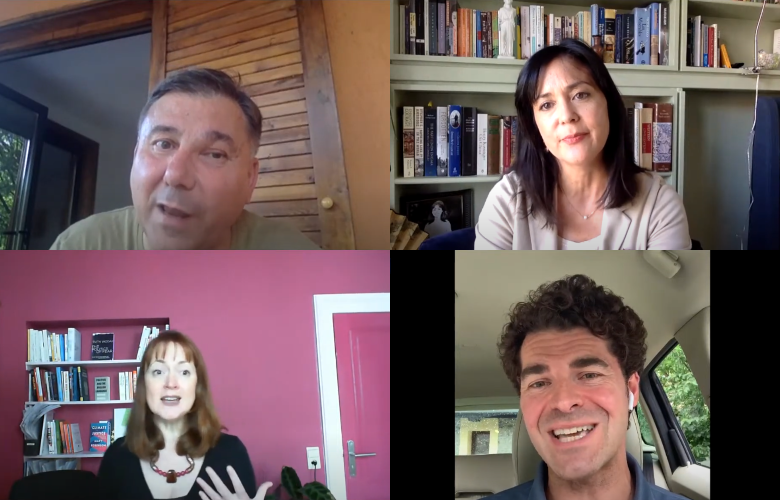
The Summit was concluded by a panel discussion on democracy’s challenges and the possible solutions between Ivan Krastev, Chairman of the Centre for Liberal Strategies, Heather Grabbe, Director of the Open Society European Policy Institute and Alberto Alemanno, Professor of EU Law and Policy at HEC Paris. The conversation was moderated by Liz Alderman, the chief European business correspondent for The New York Times. Ivan Krastev noted that there is no one-size-fits-all solution to these challenges, underlining the need to be mindful of the context. The issue of instant gratification and the major challenges posed by climate change were brought up by Heather Grabbe who also proposed that different ways of deliberative democracy could be part of the solution. Along these lines, Alberto Alemanno pointed out that the political will to experiment seems to be greater than ever and that we will soon see how the governments’ attempt to position themselves in relation to embracing democratic innovations unfolds.
The recording of the event is available on International IDEA's YouTube channel.
